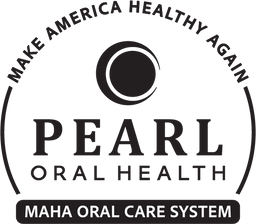
Hypochlorous Acid Helps Your Wounds Clean and Recover
Hypochlorous Acid (HOCl) was first discovered in 1834 by the French chemist Antoine Jérôme Balard. HOCl is made from salt, water and electricity. It can be used as a household cleanser and on your body. Due to the long history of using this mixture for cleaning and recovery, scientists and health professionals have advanced its use.
According to chemical scientists, hypochlorous acid can be very beneficial for cleansing wounds. Unlike other chemicals, hypochlorous acid is not harsh on the skin. It is mostly weak when diluted in water and can be used as a primary source of care for wounds. As such, this acid effectively reduces the quantity of bacteria that may proliferate to enable a healthy and balanced microbiome.
Hypochlorous Acid Cleanses Wounds
Hypochlorous acid (HOCl) is also known as hydrogen hypochlorite or chlorine hydroxide. It is formed naturally in mammals’ white blood cells and used for cleaning and caring for wounds. It is very active and can effectively serve as a fighting agent against bacteria and fungi, and viruses.
Scientifically, it has been proven that a little drop of hypochlorous acid rapidly works against fungi which produce spores. HOCl may be one of the most potent products that can efficiently stand against germs and infections and fights against pathogens in the human body, even at the delicate period of wound recovery.
HOCl is known to be mild, non-toxic, and very much safe for the human body. This acid has many profound beneficial effects for wound management. Its efficacy is a factor that cannot be denied nor overlooked.
How Effective Is Hypochlorous Acid?

Hypochlorous acid is very much an effective disinfectant and has been proven to be a very effective chlorine species of chemical compounds. When applied on the surface and area of the wound, it helps relieve pain, reduce the recovery process, and aid with skin burns.
It is one of the best compounds you can seek for your wound. It is recorded that hypochlorous acid is, in many ways, better and more active than sodium hypochlorite. One of its remarkable attributes is that it does not leave any form of skin burn, flap, or irritation on your body.
Using Hypochlorous Acid on Wounds
Research studies have also shown that the use of hypochlorous acid effectively reduces Staphylococcus aureus. With the number of many healthy chemical compounds, hypochlorous acid is considered as an ideal chemical for your skin wound solution. It cleanses your wounds to help prevent fungi, bacteria, or viruses from growing.
The mouth in particular has many nerve endings and the pain from even simple dental extractions can be magnified. HOCl can also assist in pain control.
Conclusion: HOCl is a Great Wound Remedy!
Hypochlorous acid it is not just mild on the skin, it helps wounds recover faster. So, the injured part of the body does not feel any further pain until the wound closes up, and the scar totally disappears.
The hypochlorous acid helps to eliminate microorganisms in and around wound regions. It has a potent microbial potency that makes it outstanding from every other chlorine acid.
Although a compound of it without proper stabilization can make it become toxic to the skin or the area it is applied on. That is why it is very much advisable that the acid is allowed to go through some processes of concentration before it can be used on a wound surface.
Pearl Oral Health has perfected the manufacturing process to dilute the hypochlorous acid to a concentration that is optimal for helping irritation and mild injuries around the mouth and skin.
While it helps the fast recovery of the wound, HOCl works as an agent against wound infection and is also able to remove irritating odors that could come as a result of the injury.
Hypochlorous acid effectively sterilizes dead tissues in the wound region. Many people find medical products with HOCl an efficient wound remedy. Any side effects that may have occurred stemmed from misuse of the mixture. Therefore, it is safe to say that HOCl is one of the best solutions for wound repair!
Visit Holistic Dentistry USA for more articles on Hypochlorous Acid.


